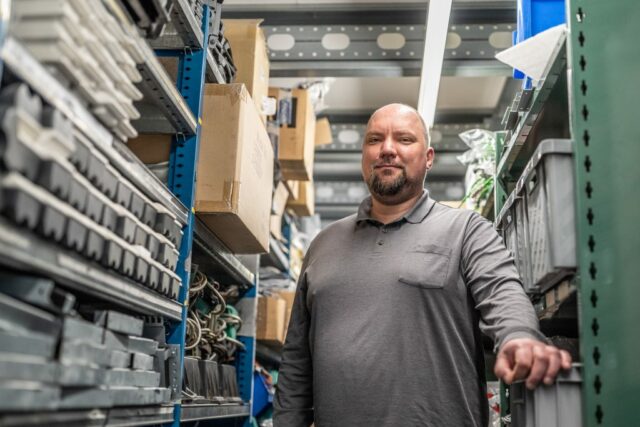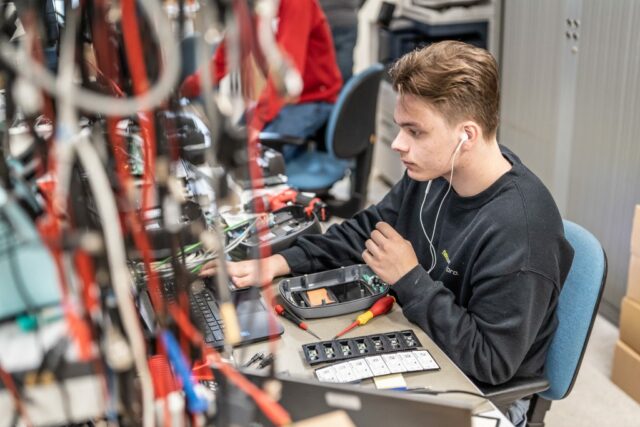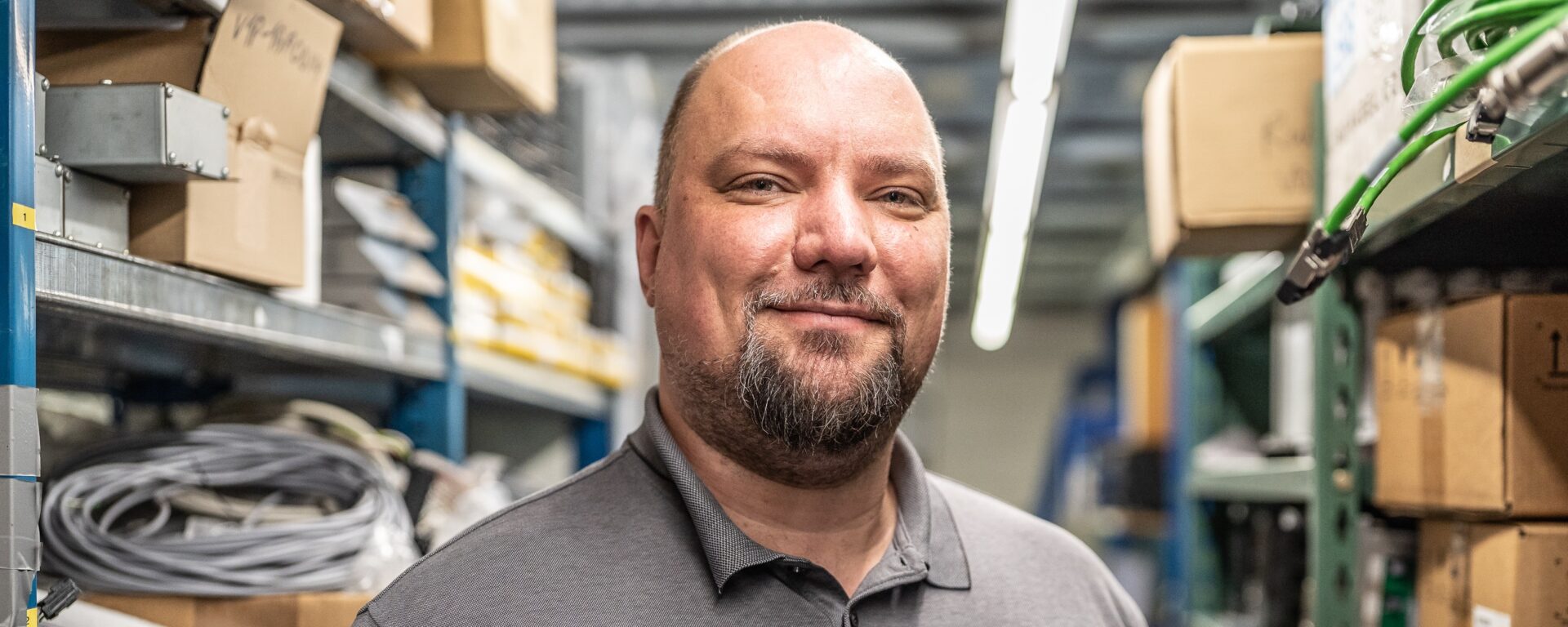The depot of Transdev Netherlands subsidiary Breng in Arnhem is bustling with activity. Drivers bring their buses out of the depot, vehicles are cleaned by the Cleanteam, and in the huge workshop, the technicians keep the fleet in top condition. But at the back of that workshop, somewhat hidden away, another very important team is active : the specialists of Vehicle Periphery.
It’s a nice term for various devices on our vehicles. Smart card readers, the announcement system, the fare boxes, the traffic light controls and much more. We make sure that everything works properly.
Edwin Koldenhof, Vehicle Periphery Manager
After my IT training, I started working for IBM and the Dutch Tax and Customs Administration, among others, but the work I did there soon felt ‘chewed out’. I wanted to be more creative, to come up with new ideas and solutions and to implement them
says Edwin.
I got that chance at Thales, the IT company that set up the public transit smart card system in the Netherlands. I gained a lot of experience in that project, and from that position I was also heavily involved in the implementation of InfoXX, the communication system used by bus drivers to view their trips and driving times and to communicate with the control center, for example.
The specific knowledge Edwin gained during that time came in handy when he made the switch to Connexxion and Transdev in 2013.
« I started in IT. Vehicle Periphery didn’t exist then. At the time, there was mainly not enough structure in our cooperation with different suppliers of peripherals, so that offered a nice challenge. In the end, we set up the VP team in nine months, to which I devoted a lot of time and energy. It really feels like my baby » says Edwin, visibly proud.

The team now consists of around 15 people. We are the only public transportation operator in the country to have a Vehicle Periphery Department on this scale.
continues Edwin.
Where other transportation companies outsource much of this work and are thus more dependent on suppliers, we keep control ourselves. For example, we support the Traffic Control Center and other workshops with our specialized ‘qualifiers’, we carry out repairs ourselves in this workshop and we have our own ‘engineers’ who ensure the quality of the installations in our vehicles. We even develop our own hardware, with which we do unique things within the public transit market.
That almost everything in the field of peripherals takes place in-house becomes immediately clear when you enter the small, but well-equipped workshop. A row of fare boxes (the replacements for the InfoXX system) stands on a workbench, each one opened as if waiting for a surgical procedure. A technician inserts a security chip into the chip card validator linked to his laptop. In the middle of the workshop is a complete ‘bus brain’, a panel containing all the electronics needed to test and adjust the peripherals without having to park an actual bus in the workshop. « Our job is to maintain all the systems and fix faults where necessary. Not only so that drivers can do their work properly, but also because the cash registers must keep running, » Edwin explains with a smile, nodding towards a shelf full of piled up PIN terminals.

Maintaining the existing systems is very important, but Edwin and his team are also very much focused on the future. « Especially in the field of new payment methods in public transportation, there is a lot in store for us and the passenger, » says Edwin enthusiastically. « Think of OVpay, a national project in which all kinds of new payment methods will be introduced in the coming years. One example is being able to check in with your debit card or smartphone, something that is already possible in several places. Our equipment is already largely suitable for this, but security is key. That is why we are building a special chip into the equipment that ensures that the transaction with the passenger’s bank takes place via a secure connection. »
Another project that Edwin is visibly enthusiastic about is CBIOT. That sounds very complicated, but the principle is quite simple according to him: « more and more devices are connected to the Internet and exchange data in order to function quickly, intelligently and efficiently. This is also known as Internet of Things. We have put Connected Bus in front of this. We want to make buses ‘smarter’, with the ultimate goal of a remotely controlled bus. But don’t worry, » he continues with a laugh, « remote controlled doesn’t mean that we are going to drive the bus remotely, but that we want to be able to manage it remotely. It would allow equipment to be updated and faults to be solved from a central point. We could even start up the equipment in buses remotely, such as the ticket box and card readers, so that a driver could drive off immediately without having to wait for the systems to be booted up. »
When Edwin looks back at the start of his career at Transdev, he can’t help but conclude that great progress has been made: « when I came in here, it was often a case of putting out the proverbial fires. But since then, we’ve all learned a lot and worked hard to get to where we are now: an efficient Vehicle Periphery Department with a lot of knowledge and experience. And I am very proud of that! »

